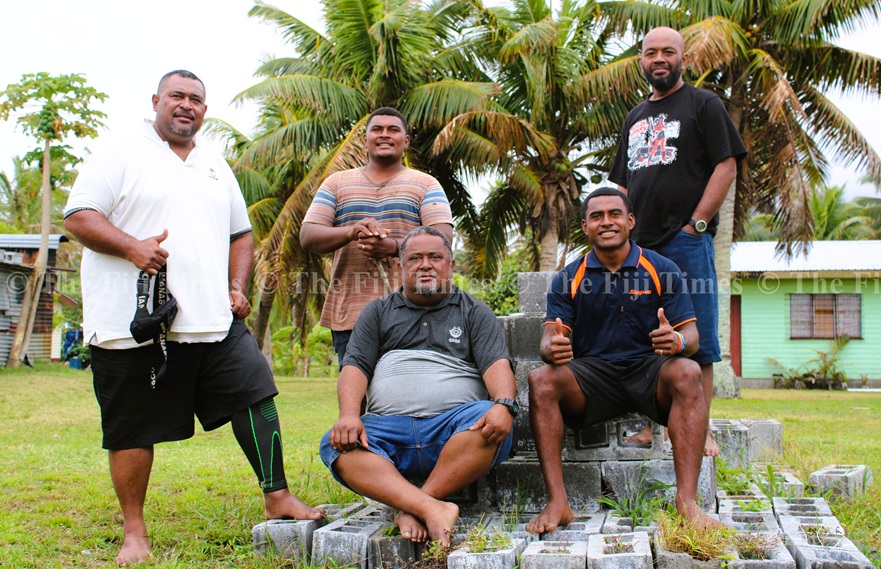As we approached the village of Levukaidaku, it was impossible to miss the red roof that conspicuously stood tall above the all the other buidings.
I was told by a young man who had welcomed us, as we disembarked, that it was the new village church currently under construction.
The sound of hammers and the soft murmur of villagers working together could be heard as we passed by.
This was just another example of the age-old Fijian tradition of solesolevaki at play on the island of Matuku in Lau. Communal work for the common good.
For two years, the ruins of Levukaidaku’s old church stood as a painful reminder of Cyclone Harold’s devastation in 2016.
The storm had ripped away its roof and left its walls broken.
Community mobilisation
Bolstered and determined, the people mobilised themselves and the rebuilding efforts itself is not led or supported by external aid or government funding, but by the villagers themselves.
“The church rising before you today is purely because of the efforts and from the hands of the Levukaidaku people,” said village elder Joeli Vakayatu.
“We have not asked for assistance from elsewhere.”
Work on the new church began nearly two years ago, powered by the strength and determination of the village’s youth.
The timber, cement, and corrugated iron sheets were all transported manually, by fibreglass boats from the jetty to the village, by the young men of Levukaidaku.
Even the old church’s foundation was demolished by hand.
“If you look closely, the remains of the old church are still standing inside the new one,” Vakayatu said.
“It reminds us of where we came from.”
The rebuilding effort has also been supported by villagers living in Suva.
Drawing people together
Led by the village committee, villagers recently organised a Levukaidaku Day, a fundraising event that drew together families, friends, and well-wishers from across Fiji.
The result was astonishing! Over $130,000 was raised, enough to transport materials, hire carpenters, and restart construction.
Taito Coriakula, a committee member based in Suva, said the success of the event was only possible because of the community’s love and unity.
“We may be a young committee, but through togetherness and love, we’ve been able to carry out our roles,” he said.
“This project is proof of what we can achieve more when we work as one.”
Coriakula credited the village youth for their tireless contribution to the project and for embracing the values that define the vanua.
“The future of our vanua, Wailiwaliwa, is in the hands of our young men,” he said.
“When they return home, they learn how to serve, through fishing, farming, village development, and traditional duties. It grounds them.”
“We don’t want them to be lost to drugs or crime. Here, they are safe, productive, and proud of who they are,” Coriakula said.
Tackling rural-urban drift
He added that the committee has been working to bring back young people from Suva, especially those who left school early, to reconnect with their roots and stay away from the social problems often encountered in the city.
“For those of us from the islands, going to Suva is not easy,” he said.
“When you live with relatives, your success often depends on how you are treated. Some of our youths face hardships and return home disheartened. That’s why it’s so important we create opportunities here and to keep them close to family and the vanua.”
However, challenges remain for the people of Levukaidaku.
Vakayatu highlighted the urgent need to revive the village’s nursing station, which has remained unstaffed.
“If someone gets sick, we have to take them all the way to Yaroi by boat,” he said.
“It can take over an hour and cost up to $80, most of us depend on seafood and coconuts for income.”
Despite such hardships, there is an unshakable optimism in Levukaidaku.
The new church is now nearing completion and the villagers hope to open its doors by the end of the year or early 2026.
For Vakayatu, the building is also very symbolic.
“The hands that built this church are the same hands that will continue to build our future,” he said.
As I stared out towards the surf breaking on the reef’s edge from the village green, I was reminded of just how much we can achieve with a unified purpose as a our guide, it was something that was clearly reflected in the work ethics and commitment showed by the youths of Levukaidaku.



